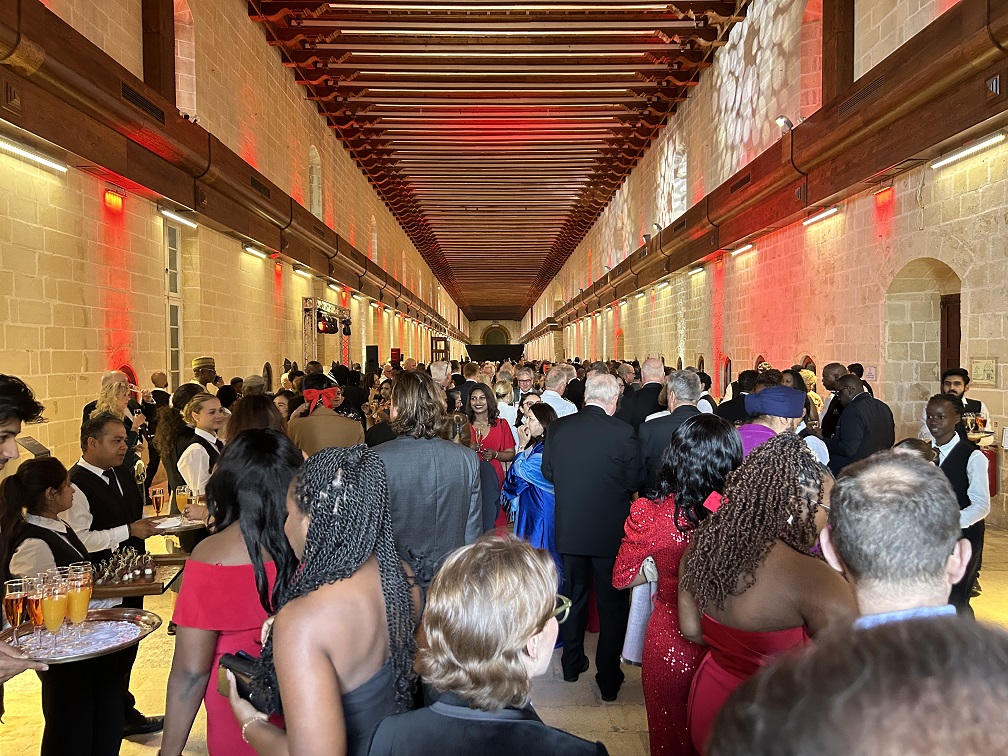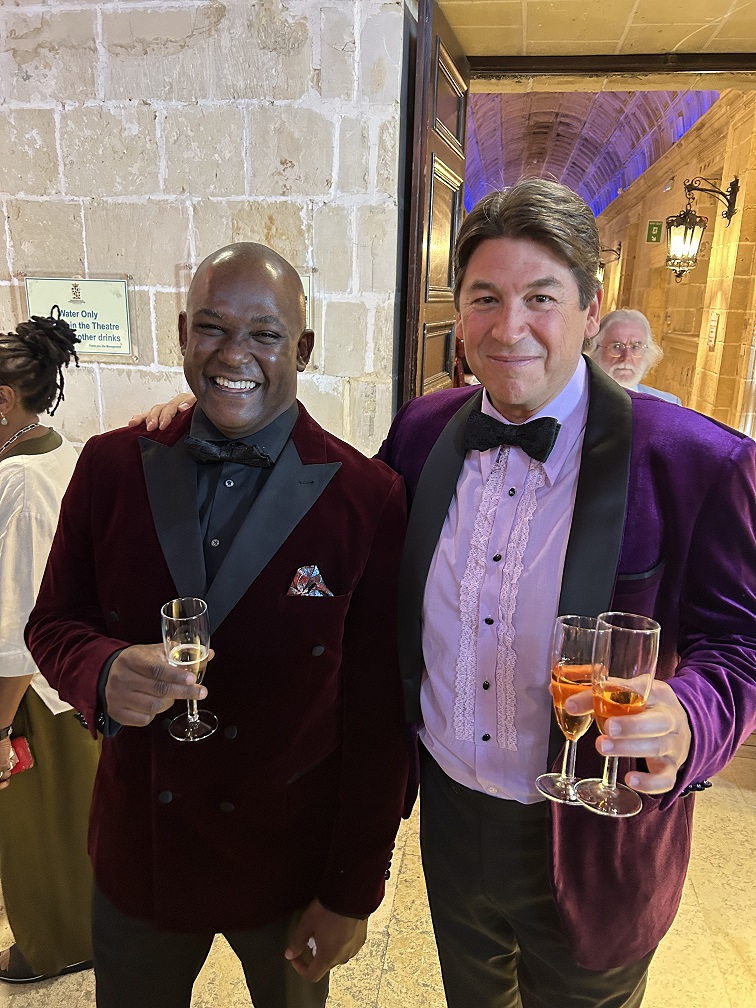
From 6 to 10 April, I attended the Commonwealth Law Association (CLA) Conference at the Hilton Hotel in St Julien, Malta. It was my first time at that conference. It was quite an experience. This is a rather personalised report.
My interest in the CLA arose from my work with the BAQ South Pacific Legal Education Committee. Members might not be aware of that Committee, but it is well established and active. Its flagship program is a one week commercial litigation intensive delivered in Port Moresby to graduates completing their practical legal training. The course was first delivered in 2014. Over time, the work of the Committee has expanded to include other in person and on-line teaching programs.
The work of the Committee now focuses on the whole of the South Pacific and that broader perspective made me receptive to the work of the CLA. Justice John Logan has been active in both Papua New Guniea and the CLA and he sparked my interest in the CLA conference.
It might come as a surprise to some that the CLA conference would be in Malta. However, Malta is a member of the Commonwealth. It was a British colony from 1800, when the French were evicted, until 1964. Prior to the British administration, it had a civil law system and its modern legal system is an interesting melding of the two. I spent much of my youth in Mackay, surrounded by Vellas, Zarbs, Bartolos and Camilleris. Everyone in Malta looked vaguely familiar.
My first impression of the CLA was the welcome drinks on the Sunday evening. It did not disappoint. All the variety and vitality of the Commonwealth was on show. There are over fifty countries in the Commonwealth, and most of them were present at the drinks. It was worth the trip just to mingle.

My strategy at the conference was to walk up to anyone who looked friendly and say hello. It was a successful strategy. Nearly everyone I approached was as curious about me as I was about them. My wife Hanne was a particular hit, as the only Norwegian at the conference.
To give you a flavour of the event, the first person we approached turned out to be a very experienced member of the Malawi Law Reform Commission. We spoke about Malawi, law reform in Malawi, her experiences as a lawyer, and as a mother and grandmother. What struck me then, and repeatedly thereafter, was that the legal and personal lives of the delegates were so similar despite the great variety in the places and systems in which we practiced. A Kenyan building lawyer I sat next to at the conference dinner described building litigation in a weary manner which was very familiar.
The format of the conference involved a plenary session in the morning, then streamed topics in smaller sessions over the balance of the day. There were six streams. The range of the content and the variety in the background and experience of the presenters was extravagant.
The plenary sessions frequently featured judicial and professional speakers of the highest authority. Appeal Judges, Chief Justices, Judges, serving politicians (including an array of current and former Attorneys-General) and senior UN and Commonwealth officials were speakers. A session on attacks on judicial independence featured the Chief Justice of Malaysia, the Chief Justice of England and Wales, the Minister of Legal and Constitutional Affairs of Jamacia and the UN Special Rapporteur on Independence of Judges and Lawyers. The address of the Chief Justice of Malaysia was particularly remarkable. The history she described of challenges to judicial independence in the late 1980s and the subsequent consequences was eye opening.
Generally, however, the plenary sessions were rather general. Some speakers tended to invoke the holy trinity of Judicial Independence, Rule of Law and Human Rights, without really saying too much of substance. However, asking around, I discovered that there was often a reason for that. It was pointed out to me by a CLA old hand that some of the speakers had to exercise great caution in what they said. He explained that the mere fact the speakers were speaking at the conference at all was important because it drew attention in their home country to the public involvement of the judiciary at a major Commonwealth event. The CLA seem to provide a venue for providing moral and diplomatic support for Judges and lawyers in challenging environments, just by being there. An idea which had not occurred to me before.
A stand out plenary session was the session on AI and the law. I have been to many AI and the law sessions and, with respect to others, this was the best (although maybe all the other lectures had given me the foundation to benefit from what I heard). There were two papers; one delivered by Professor Richard Susskind and the other by Mr Ian McDougall, President of the LexisNexus Rule of Law Foundation. Professor Susskind has been on the AI bus since his doctoral thesis in the 1980s and would be known to many. It would be fair to describe him as one of the foremost thinkers on law and AI. Mr McDougall has been working thoughtfully on AI in law for many years. I will not recount in detail what they said. Suffice to say it was inspiring and alarming to equal degrees.
The sessions in the individual streams could be a little banal at times, but mostly they were more direct and focussed on specific topics. I went to the judiciary stream. The topics were more practical than academic or theoretical. The sessions were always in a panel format, with two or three speakers, then questions and comments.
I was powerfully affected by one session on judicial delays. It was uniformly terrible news. A judge of one central African country explained that some of her cases were adjourned because the Court room leaked too much in heavy rain to keep sitting. A lawyer from the UK described the difficulties they have with the condition and size of court houses, particularly outside the major cities. Other judges spoke of the decay of the judicial estate. It made the problems we have in Queensland with Court houses appear modest.
Most of the other speakers and commentators from the audience told stories of delay which were extreme, with some almost unbelievable delays. The reports included the follows. One Carrbibean country has huge delays in delivery of judgments, with 113 case still outstanding after 5 years. Another large Southern African country is listing criminal trials in 2031! And rich countries are not immune. The UK is listing criminal trials out to 2027 at the Old Bailey. And Canada is listing civil trials out to 2028, largely because all resources are thrown at criminal trials after a Supreme Court decision that delay in trial of more than 2 years will lead to dismissal of criminal proceedings (presumably on abuse of process grounds), though I have been informed that that Court has walked that principle back recently. The sad news went on and on and was confirmed by my chats outside the session with other judges.
I was too embarrassed to report the position in Queensland’s State Courts. While any delay is too much delay and we are far from perfect, the state of the lists in the District Court (with which I am most familiar) is tolerable compared to the extreme problems elsewhere. I suspect the other Queensland Courts are in a similar position.
I assumed that the better performance in Queensland was largely a matter of resources, and there is no doubt that Queensland is much richer than many of the other states in the Commonwealth. However, my discussions with lawyers and judges outside the sessions suggested that there was more to it. In civil, which was of particular interest to me, some jurisdictions have not embraced the substantive pleading approach evident in the Uniform Civil Procedure Rules. Nor is there broad adoption of mediation of commercial disputes. A Kenyan lawyer looked at me with amazement when I explained how effectively mediation of civil disputes operates in Queensland.
The informal discussions outside the sessions was perhaps the most interesting part of the conference. The Commonwealth is astounding in its diversity, having a foothold in almost every part of the world. The wealth of different experiences and perspectives made almost every conversation an adventure. One aspect of the conference with surprised me was the enthusiasm for the CLA evident in the attendees. Obviously, it was a group self selecting for positive attitudes to the CLA, but it remains the case that numerous countries participated energetically in the conference.
The black tie dinner on the last evening was a particularly colourful event, full of good will and spectacular attire. I am pleased to report I was not the only person there in a velvet tuxedo.
The capacity of the CLA and the Commonwealth to contribute to the rule of law in Commonwealth countries should not be underestimated. Nor should the excitement which the energy and diversity of the conference brings. I thought Australia under-represented, especially compared to the UK and Canada. The next CLA conference is in Darwin in 2027. I will attend if I can. I would urge you to do the same.





